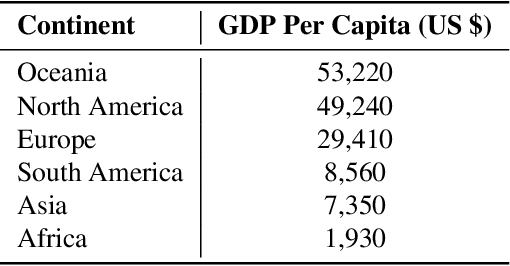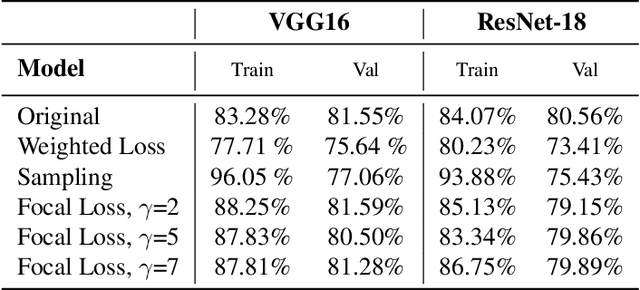Akshat Jindal
Detecting anxiety from short clips of free-form speech
Dec 23, 2023



Abstract:Barriers to accessing mental health assessments including cost and stigma continues to be an impediment in mental health diagnosis and treatment. Machine learning approaches based on speech samples could help in this direction. In this work, we develop machine learning solutions to diagnose anxiety disorders from audio journals of patients. We work on a novel anxiety dataset (provided through collaboration with Kintsugi Mindful Wellness Inc.) and experiment with several models of varying complexity utilizing audio, text and a combination of multiple modalities. We show that the multi-modal and audio embeddings based approaches achieve good performance in the task achieving an AUC ROC score of 0.68-0.69.
Classification for everyone : Building geography agnostic models for fairer recognition
Dec 11, 2023



Abstract:In this paper, we analyze different methods to mitigate inherent geographical biases present in state of the art image classification models. We first quantitatively present this bias in two datasets - The Dollar Street Dataset and ImageNet, using images with location information. We then present different methods which can be employed to reduce this bias. Finally, we analyze the effectiveness of the different techniques on making these models more robust to geographical locations of the images.
Imitation with Neural Density Models
Oct 19, 2020



Abstract:We propose a new framework for Imitation Learning (IL) via density estimation of the expert's occupancy measure followed by Maximum Occupancy Entropy Reinforcement Learning (RL) using the density as a reward. Our approach maximizes a non-adversarial model-free RL objective that provably lower bounds reverse Kullback-Leibler divergence between occupancy measures of the expert and imitator. We present a practical IL algorithm, Neural Density Imitation (NDI), which obtains state-of-the-art demonstration efficiency on benchmark control tasks.
 Add to Chrome
Add to Chrome Add to Firefox
Add to Firefox Add to Edge
Add to Edge